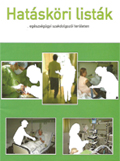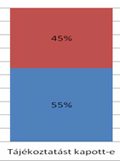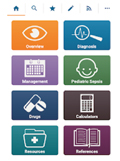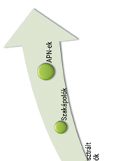The eLitMed.hu medical portal uses computer cookies for convenient operation. Detailed information can be found in the Cookie-policy.
Journal of Nursing Theory and Practice - 2019;32(03)
Content
[Understanding the past may help to shape the future (’Medical tasks, delegation and nursing’ - the past, present and the way forward)]
[The history of nursing in Hungary has an aspect that has often been addressed but never looked into to the required depth and detail. This aspect concerns the regulation by law of certain specific relations between medicine and nursing from the mid-twentieth century to date. This issue has now come to the fore due partly to amendments to the legal framework and partly to changes in nursing education. ]
[Postoperative pain management today in Hungary - Part 2 ]
[According to the literature, the practice of postoperative pain relief in Hungary is an area to be developed. Postoperative pain is a key issue for patients. Surveys show that more than 59% of patients are worried about postoperative pain. Their concerns are not baseless, as recent studies have consistently shown that pain has not been properly treated after surgery. It has also been shown that postoperative pain can lead to a deterioration in the quality of life of patients. The aim of our study was to assess the degree of postoperative pain in patients and their satisfaction with pain relief. We conducted interviews based on personal inquiries with a total of 168 patients, with the involvement of certain surgical departments of three Hungarian institutions. Based on our results, we found that patients report remarkable pain after surgery, so the practice of postoperative pain relief is in many cases unsatisfactory. Comparing the results and the international literature, postoperative analgesic practice can be considered as an area to be developed. ]
[The role of nurses and their tasks in early sepsis management]
[The Surviving Sepsis Guideline (SSG) is a document that proposed new solutions in the diagnostics and treatment of sepsis. The methods identified were the 100% oxygen therapy, fluid resuscitation, blood culture and microbiological analysis, empiric combination antibiotic therapy, lactate monitoring, comparison of PCT and CRP, and surgical opening. Using the above mentioned methods has proven to improve the quality of sepsis treatment and the safety of patients. Sepsis -6 protocol has been highlighted by the authors as a process that is easy to implement in terms of cost while remaining highly beneficial. This recommendation should also be well known for nurses that do not work in emergency units. This will help recognise sepsis at an early stage, and provide guideline in the analytical examination and the possibilities within the competence. ]
Nurses‘ competences in preventive cardiology
Introduction: The nurse education in the Czech Republic is based on the recommendations of the European Union, respecting the outcoming knowledge and skills of general nurses, formulated in basic competence criteria. Cardiovascular diseases rank among the main causes of death not only in many developed countries, but also in developing countries. Accent should be put on prevention of these diseases and the nurses should provide for efficient education. Goals and methods: The goal of the article consists in presenting the results of the analysis of the available sources focused on nurse education and the resulting competences in the field of cardiology, as well as in describing the system of health-educational activities of nurses in preventive cardiology in selected EU countries. The methods of research and structured interview were used. Results: The nurse‘s task in prevention of cardiovascular diseases consists in educating the public on influenceable risk factors which have significant impact on the incidence of cardiovascular diseases, but also on people‘s quality of life. It is important to alert the people to changes in their own risk behaviours and to motivate them to activities leading to improved life style. Conclusion: It can be concluded that the nurses in preventive cardiology make use of the competences acquired through pregradual studies. However, the current practice requires increasing competences within postgradual education.
[Regulation of the Legal and Extent Competence for Nurse’s at Healthcare in Slovakia ]
[The nursing competencies changed in Slovakia during 2018. One of the main goals of today’s nursing training is to ensure that nurses fully meet the needs of today’s society. According to the new regulation in Slovakia, it divided nurses into three categories. The aim of this article is, to explain what changes occurred in the competencies over the past year. ]
1.
Clinical Neuroscience
Is there any difference in mortality rates of atrial fibrillation detected before or after ischemic stroke?2.
Clinical Neuroscience
Factors influencing the level of stigma in Parkinson’s disease in western Turkey3.
Clinical Neuroscience
Neuropathic pain and mood disorders in earthquake survivors with peripheral nerve injuries4.
Journal of Nursing Theory and Practice
[Correlations of Sarcopenia, Frailty, Falls and Social Isolation – A Literature Review in the Light of Swedish Statistics]5.
Clinical Neuroscience
[Comparison of pain intensity measurements among patients with low-back pain]1.
Clinical Neuroscience Proceedings
[A Magyar Stroke Társaság XVIII. Kongresszusa és a Magyar Neuroszonológiai Társaság XV. Konferenciája. Absztraktfüzet]2.
3.
Journal of Nursing Theory and Practice
[A selection of the entries submitted to the literary contest "Honorable mission: the joys and challenges of our profession" ]4.
Journal of Nursing Theory and Practice
[End of Life and Palliative Care of Newborns in the Nursing Context]5.
Journal of Nursing Theory and Practice
[Aspects of Occupational Health Nursing for Incurable Patients ]







